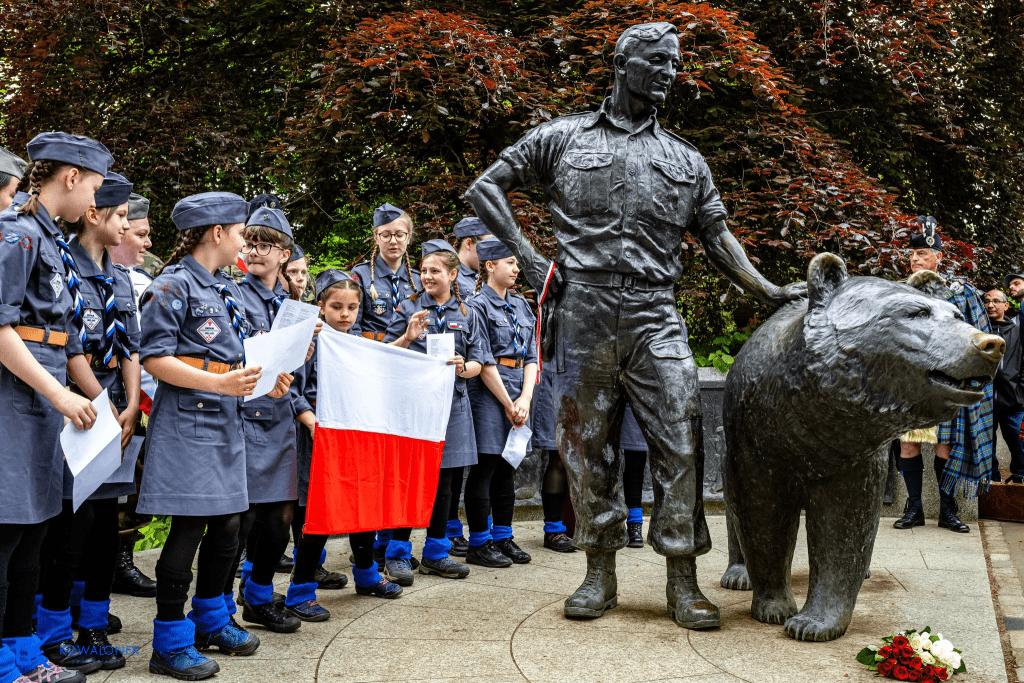Among the many remarkable stories to emerge from the chaos of World War II, one stands apart not for its brutality, strategy, or politics, but for its heart. It is the story of Wojtek, a Syrian brown bear who didn’t just accompany soldiers into battle, he became one of them. Traded by a young shepherd in Iran for a few cans of food, Wojtek’s journey from orphaned cub to beloved war hero is nothing short of legendary.
To the soldiers of the Polish II Corps, Wojtek wasn’t just a pet or a curiosity. He was family. He marched, he wrestled, he carried heavy artillery crates during the Battle of Monte Cassino, and above all, he lifted the spirits of a displaced army trying to find its place in a broken world.
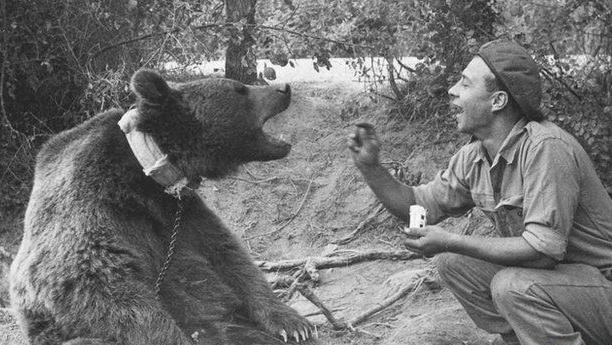
A Bear Joins the Army
In 1942, Polish soldiers stationed in Iran after their release from Soviet camps encountered a young boy carrying a bear cub. The cub’s mother had been shot, leaving the tiny creature orphaned and vulnerable. The soldiers, moved by compassion and longing for something to care for amid the grimness of war, offered the boy tinned meat, chocolate, and a Swiss army knife in exchange for the cub.
They named him Wojtek pronounced “Voy-tek” meaning “joyful warrior” in Polish.
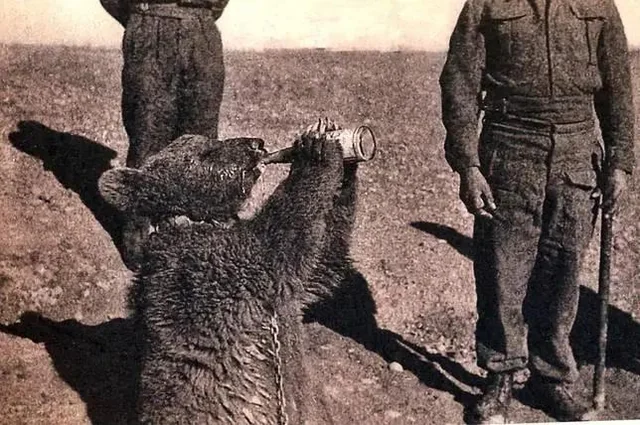
Wojtek quickly became part of the unit’s daily life. He slept in tents with the men, drank from beer bottles, and loved to wrestle. He was known to mimic the soldiers’ behavior, even learning how to salute. But as he grew, so did his role. When the unit was deployed to Italy, military regulations prohibited animals from traveling with combat units. The solution? Wojtek was officially enlisted as a soldier.
He was given a rank, a serial number, and rations just like everyone else. In the eyes of the army, Wojtek was no longer just a mascot he was one of them.
Video:
The Heart-Melting Story Of Wojtek, The Soldier Bear
A Bear on the Battlefield
Wojtek’s most famous contribution came during the brutal Battle of Monte Cassino in 1944. Known for its grueling terrain and fierce resistance, the battle pushed every man to his limit. Amid the chaos, Wojtek did what no one expected a bear could do he carried heavy wooden crates of artillery shells across the battlefield, unfazed by the noise and danger.
Soldiers later recalled that Wojtek never dropped a single shell. His strength and calm demeanor under fire earned him admiration and respect. After the war, the emblem of Wojtek carrying a shell was adopted as the official insignia of his unit the 22nd Artillery Supply Company.
Wojtek’s courage wasn’t measured in bullets or medals. It was in his loyalty, his strength, and the sense of home he gave to those who had lost so much.
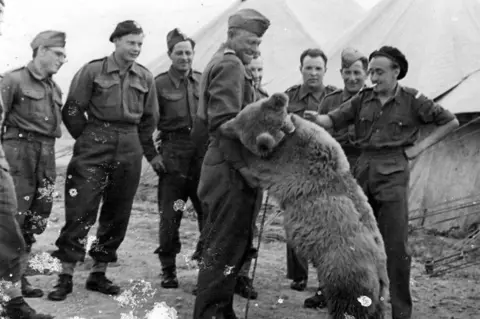
A Gentle Giant’s Final Years
After the war ended, Wojtek traveled with his unit to Scotland, where the soldiers were demobilized. Unable to return to Communist-controlled Poland, many settled in the United Kingdom. Wojtek was welcomed by the people of Edinburgh and eventually moved to the Edinburgh Zoo, where he lived out the rest of his life.
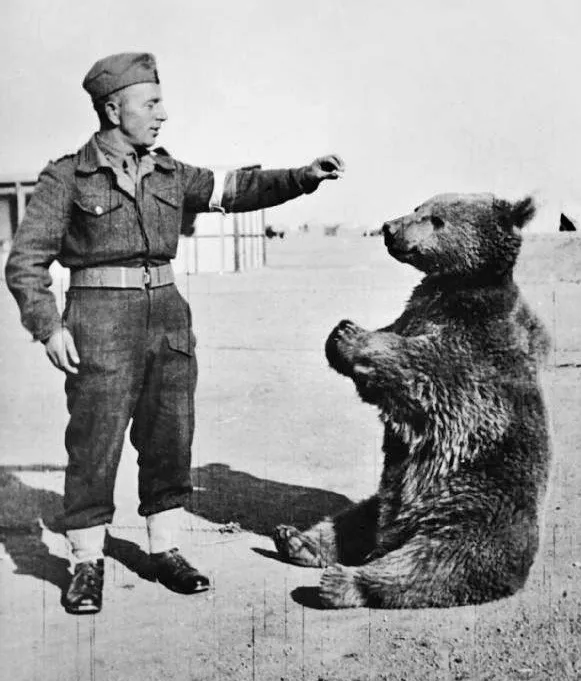
Even in the zoo, he remained a celebrity. Former comrades and local children would visit him, calling out his name and tossing him cigarettes which he was known to enjoy, though not light. He lived at the zoo until 1963 and passed away at the age of 21.
Video:
Weakest polish soldier
A Legacy Cast in Bronze and Memory
Wojtek’s story continues to inspire people around the world. Statues of him stand proudly in locations including Edinburgh, Kraków, and London. His legacy is also honored in books, documentaries, and museum exhibits. More than a wartime novelty, Wojtek represents the resilience of the human spirit and the bonds that can form in the most unlikely places.
He reminds us that brotherhood isn’t limited to humans, and that even in the darkest moments of war, kindness, connection, and courage can shine through.
Wojtek was more than a bear. He was a soldier, a friend, and a symbol of hope a gentle giant who went to war and came home a hero.
